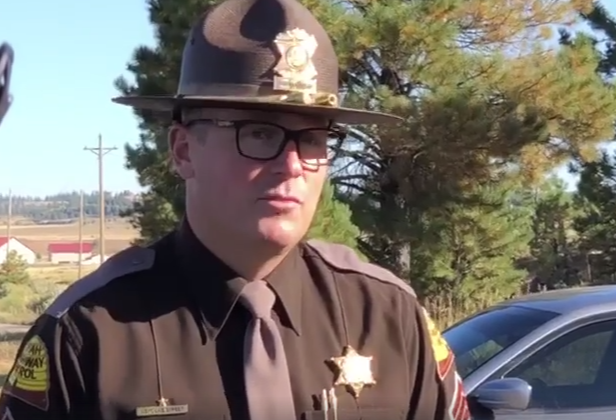
ST. GEORGE — Studies from the U.S. Department of Justice have shown that citizens base their perceptions of police officers from their last encounter with an officer. At the heart of any encounter is communication. Along these lines, a bill before the Utah Legislature addressing de-escalation training aimed at improving communication – particularly in volatile situations – unanimously passed the House on Feb. 8, as well as its first hurdle in the Senate last week.

Peace Officer Training Amendments, designated HB 162 in 2021 Utah Legislature and introduced by Rep. Angela Romero, D-Salt Lake City, addresses police training that focuses on mental health, de-escalation and arrest control.
During the Senate Judiciary Committee meeting held Wednesday, Romero said the bill was a culmination of the work put forth during many meetings and working with law enforcement agencies across Utah, as well as using the input from corrections staff and community groups to find a balance that would be beneficial for law enforcement and the communities they serve.
If passed, HB 162 would modify the 40 hours of training each officer is required to complete annually to include 16 hours of training focused specifically on de-escalation training – a curriculum designed to teach officers specialized skills to slow a situation down and create space when they are confronted with a potentially dangerous situation.
The training also teaches communication techniques that are designed to help diffuse a volatile situation and strategies for officers to calmly address people with mental health issues or who are in crisis, which in turn can reduce the number of incidents that end in use of force.
Andrew Riggle with the Disability Law Center addressed the Senate committee by saying the bill would go above and beyond the 16 hours of crisis intervention training officers are already required to complete each year.

He also said they would like to see the state go further on the training requirements but acknowledged that HB 162 is a “good beginning” and that he looks forward to continuing the work to improve law enforcement training across the state.
Salt Lake City Police Chief Mike Brown also addressed the committee by saying while de-escalation training is included in much of the annual training officers are already required to complete, the changes proposed by the bill are “invaluable” and will create “new, broader and deeper curriculums across the state.”
One element in the bill is the audit component, he said, which is particularly important as a way to track the training hours dedicated specifically to crisis management tools and strategies, which has been lacking up to this point.
He also said the bill would also help to standardize training across the state.
Utah Department of Public Safety Lt. Nick Street told St. George News the department is very supportive of the bill and went on to say the agency has worked with Romero over the past year in the drafting of the legislation.
He said Romero has “graciously included some of our recommendations” into the bill.

The methods used by law enforcement when dealing with crisis situations has continued to draw local and national attention in the aftermath of the protests that continued across Utah and the nation last summer, and much of that has to do with officers having the ability and training needed to deescalate a situation before it gets to the point where it is out of control, particularly when dealing with those with mental health issues or who are in crisis.
In Utah, the push for this type of crisis intervention training has been a point of discussion and change since 2018 following a spike in the number of deadly encounters with law enforcement across the state, according to the ACLU of Utah.
Since then, police departments have been focused on diffusing potentially deadly confrontations and have made efforts to handle situations that involve mental health issues and individuals in crisis.
The bill passed unanimously 4-0 during Wednesday’s senate committee meeting and now moves to the full Senate for consideration.
For a complete list of contacts for Southern Utah representatives and senators, click here.
Check out all of St. George News’ coverage of the 2021 Utah Legislature here.
Copyright St. George News, SaintGeorgeUtah.com LLC, 2021, all rights reserved.